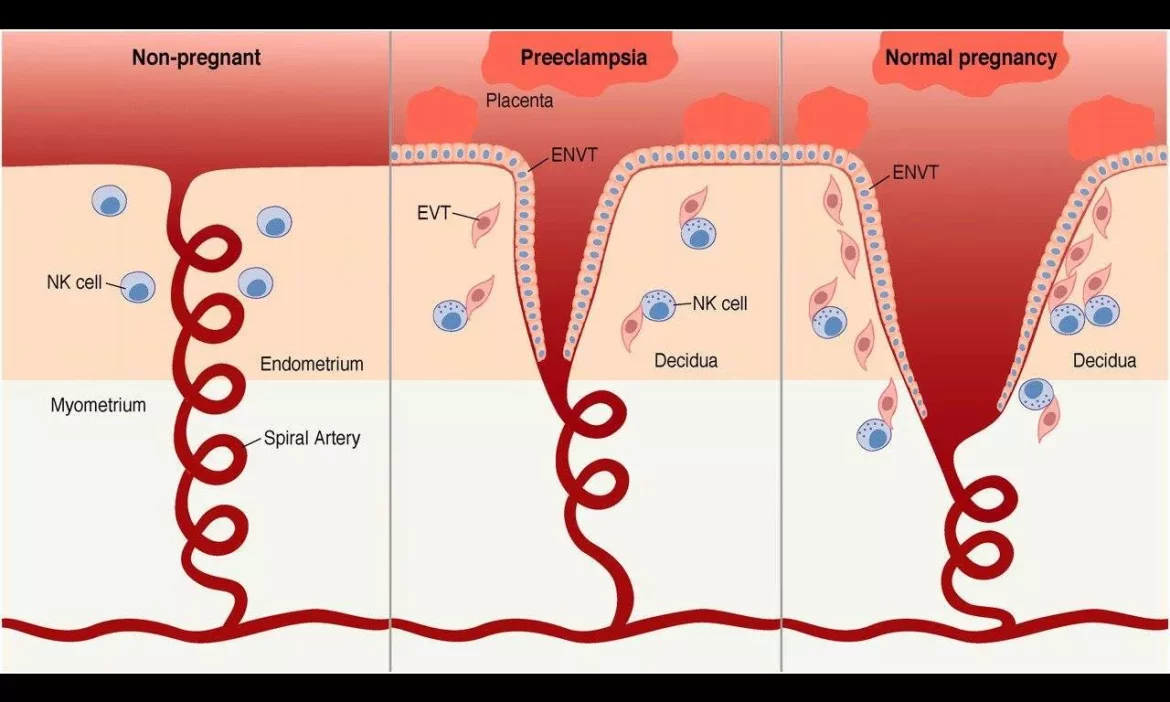Pre-eclampsia is a complex pregnancy disorder characterized by high blood pressure and signs of damage to another organ system, most often the liver and kidneys. One of the neurological symptoms associated with severe pre-eclampsia is clonus, a condition characterized by involuntary, rhythmic muscle contractions. Understanding the causes of clonus in pre-eclampsia is critical for healthcare providers to manage this condition effectively and ensure the safety of both the mother and the fetus.
What Is Clonus?
Clonus is a type of neurological hyperexcitability that results in involuntary and repetitive muscle contractions. These contractions are typically rhythmic and can be triggered by a sudden stretch or stimulus to the affected muscle. Clonus is often seen in the ankle and wrist, manifesting as rapid, uncontrollable jerking movements.
Understanding Pre-Eclampsia
Pre-eclampsia is a hypertensive disorder of pregnancy that typically occurs after 20 weeks of gestation. It is characterized by:
- Elevated blood pressure
- Proteinuria (presence of protein in the urine)
- Edema (swelling)
- Other signs of organ dysfunction
Pre-eclampsia can lead to severe complications, including eclampsia (seizures), HELLP syndrome (hemolysis, elevated liver enzymes, and low platelet count), and adverse fetal outcomes such as preterm birth and intrauterine growth restriction.
Neurological Complications in Pre-Eclampsia
Neurological manifestations in pre-eclampsia can range from headaches and visual disturbances to more severe conditions like eclampsia and clonus. Clonus indicates severe neurological involvement and often necessitates immediate medical intervention.
Pathophysiology of Clonus in Pre-Eclampsia
The exact mechanisms underlying clonus in pre-eclampsia are not entirely understood, but several factors contribute to its development:
Cerebral Edema
Increased Blood-Brain Barrier Permeability: Pre-eclampsia is associated with increased permeability of the blood-brain barrier, leading to cerebral edema (swelling of the brain). This swelling can disrupt normal neurological function, contributing to clonus.
Vasogenic Edema: Due to high blood pressure and endothelial dysfunction, fluid leaks into the extracellular space of the brain, causing vasogenic edema. This can increase intracranial pressure and lead to neurological symptoms such as clonus.
Endothelial Dysfunction
Impaired Endothelial Function: Endothelial cells line blood vessels and regulate vascular tone and permeability. In pre-eclampsia, widespread endothelial dysfunction leads to vascular instability and contributes to the neurological manifestations.
Vasoconstriction: Endothelial dysfunction causes vasoconstriction, leading to reduced cerebral blood flow and ischemia.
Ischemia can result in neuronal hyperexcitability and clonus.
See Also:What Is The Rreason for Bp Fluctuations
Hypertensive Encephalopathy
Acute Hypertension: Sudden increases in blood pressure can overwhelm the autoregulatory capacity of cerebral blood vessels, leading to hypertensive encephalopathy. This condition is characterized by cerebral edema and can trigger clonus.
Cerebral Autoregulation: The loss of cerebral autoregulation in pre-eclampsia means that the brain cannot maintain stable blood flow in the face of fluctuating blood pressure, increasing the risk of neurological symptoms.
What Causes Clonus in Pre Eclampsia?
Magnesium Deficiency
Role of Magnesium: Magnesium sulfate is often used to prevent and treat seizures in pre-eclampsia. Magnesium deficiency can exacerbate neurological excitability, contributing to the development of clonus.
Neuroprotective Effects: Magnesium has neuroprotective effects by stabilizing neuronal membranes and reducing neurotransmitter release. Its deficiency can therefore predispose to clonus.
Oxidative Stress and Inflammation
Increased Oxidative Stress: Pre-eclampsia is associated with increased oxidative stress and inflammation. These factors can damage endothelial cells and neurons, leading to neurological complications.
Inflammatory Cytokines: Elevated levels of inflammatory cytokines can disrupt normal neuronal function and contribute to clonus.
Electrolyte Imbalances
Hypocalcemia and Hypomagnesemia: Electrolyte imbalances, such as low calcium and magnesium levels, can increase neuronal excitability and predispose to clonus.
Disruption of Ion Channels: Altered ion channel function due to electrolyte imbalances can lead to increased neuronal firing and muscle contractions.
Diagnosis of Clonus in Pre-Eclampsia
Diagnosing clonus involves a combination of clinical evaluation and neurological examination. The presence of rhythmic muscle contractions in response to a sudden stretch is indicative of clonus. Further investigations may include:
Blood Pressure Monitoring: Regular monitoring of blood pressure to assess the severity of pre-eclampsia.
Urine Tests: To check for proteinuria, which is a hallmark of pre-eclampsia.
Blood Tests: To evaluate kidney and liver function, as well as electrolyte levels.
Neuroimaging: MRI or CT scans may be used to assess cerebral edema and other neurological abnormalities.
Management of Clonus in Pre-Eclampsia
Management of clonus in pre-eclampsia focuses on treating the underlying condition and preventing complications:
Blood Pressure Control
Antihypertensive Medications: Medications such as labetalol, nifedipine, and methyldopa are commonly used to control blood pressure in pre-eclampsia.
Regular Monitoring: Frequent monitoring of blood pressure to ensure it remains within a safe range.
Magnesium Sulfate Therapy
Seizure Prophylaxis: Magnesium sulfate is the drug of choice for preventing and treating seizures in pre-eclampsia. It also has a role in reducing clonus.
Dosage and Administration: The standard regimen includes a loading dose followed by a maintenance dose. Serum magnesium levels are monitored to avoid toxicity.
Delivery of The Fetus
Timing of Delivery: In severe cases of pre-eclampsia, delivery is often the definitive treatment. The timing of delivery depends on the severity of the condition and the gestational age of the fetus.
Mode of Delivery: The mode of delivery (vaginal or cesarean) is determined based on the clinical situation and the health of the mother and fetus.
Supportive Care
Fluid Management: Careful management of fluids to prevent worsening edema and maintain electrolyte balance.
Neurological Monitoring: Regular neurological assessments to monitor the progression of symptoms and effectiveness of treatment.
Conclusion
Clonus in pre-eclampsia is a serious neurological complication that indicates severe disease. The development of clonus is multifactorial, involving cerebral edema, endothelial dysfunction, hypertensive encephalopathy, magnesium deficiency, oxidative stress, and electrolyte imbalances. Early recognition and prompt management of pre-eclampsia and its neurological manifestations are crucial to improving maternal and fetal outcomes. Healthcare providers must be vigilant in monitoring and treating this condition to prevent severe complications and ensure the safety of both the mother and the baby.

